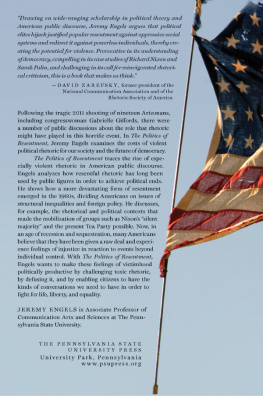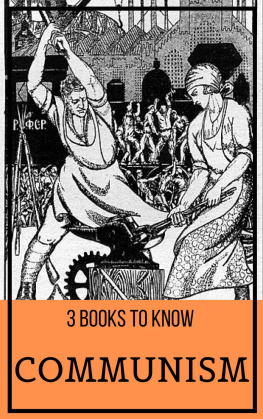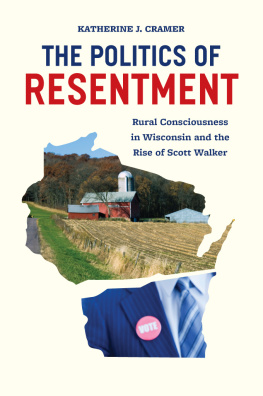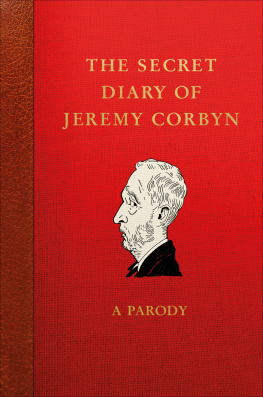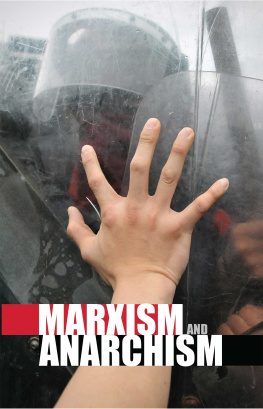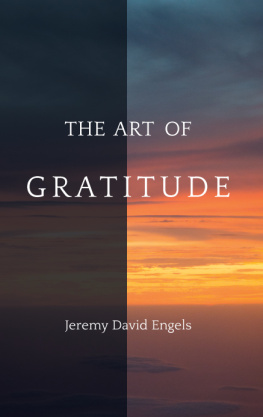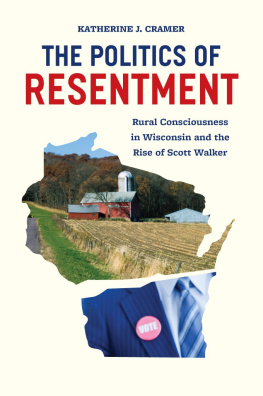Jeremy Engels - The Politics of Resentment: A Genealogy
Here you can read online Jeremy Engels - The Politics of Resentment: A Genealogy full text of the book (entire story) in english for free. Download pdf and epub, get meaning, cover and reviews about this ebook. year: 2015, publisher: Pennsylvania State University Press, genre: Politics. Description of the work, (preface) as well as reviews are available. Best literature library LitArk.com created for fans of good reading and offers a wide selection of genres:
Romance novel
Science fiction
Adventure
Detective
Science
History
Home and family
Prose
Art
Politics
Computer
Non-fiction
Religion
Business
Children
Humor
Choose a favorite category and find really read worthwhile books. Enjoy immersion in the world of imagination, feel the emotions of the characters or learn something new for yourself, make an fascinating discovery.
- Book:The Politics of Resentment: A Genealogy
- Author:
- Publisher:Pennsylvania State University Press
- Genre:
- Year:2015
- Rating:4 / 5
- Favourites:Add to favourites
- Your mark:
- 80
- 1
- 2
- 3
- 4
- 5
The Politics of Resentment: A Genealogy: summary, description and annotation
We offer to read an annotation, description, summary or preface (depends on what the author of the book "The Politics of Resentment: A Genealogy" wrote himself). If you haven't found the necessary information about the book — write in the comments, we will try to find it.
The Politics of Resentment: A Genealogy — read online for free the complete book (whole text) full work
Below is the text of the book, divided by pages. System saving the place of the last page read, allows you to conveniently read the book "The Politics of Resentment: A Genealogy" online for free, without having to search again every time where you left off. Put a bookmark, and you can go to the page where you finished reading at any time.
Font size:
Interval:
Bookmark:

The Politics of Resentment

The Politics of Resentment

A Genealogy
Jeremy Engels
The Pennsylvania State University Press
University Park, Pennsylvania
Library of Congress
Cataloging-in-Publication Data
Engels, Jeremy, author.
The politics of resentment : a genealogy / Jeremy Engels.
pagescm
Summary: Examines the problem of rhetorical violence in American political discourse, and maps the history of one form, the politics of resentment. Investigates key events in American history that have led to a current culture of resentmentProvided by publisher.
Includes bibliographical references and index.
ISBN 978-0-271-06710-0 (cloth : alk. paper)
ISBN 978-0-271-06664-6 (pbk. : alk. paper)
1. RhetoricPolitical aspectsUnited StatesHistory.
2. ResentmentPolitical aspectsUnited StatesHistory.
I. Title.
P 301.5. P 67 E 54 2015
306.440973dc23 2014047331
Copyright 2015 The Pennsylvania State University
All rights reserved
Printed in the United States of America
Published by
The Pennsylvania State University Press,
University Park, PA 168021003
The Pennsylvania State University Press
is a member of the
Association of American University Presses.
It is the policy of The Pennsylvania State University Press to
use acid-free paper. Publications on uncoated stock satisfy
the minimum requirements of American National Standard
for Information SciencesPermanence of Paper for
Printed Library Material, ansi z39.481992.
I have accumulated some big debts in writing this booknot the bad kind that are crushing, but the best kind that inspire gratitude. Gratitude is one of the most powerful emotions; it is a feeling that can wash away all the darkness of fear and self-doubt (and, in the final analysis, anger and resentment). I feel so much gratitude for all the resplendent people in my life. Without them I would feel homeless and alone. So let me begin this book as I end my yoga practice: with gratitude toward life and friends and fellow rhetorical critics.
In writing this book, Ive benefited from my contributions with, and the feedback from, a few dear friends: Kirt Wilson, who always asks the right question, whom I think sometimes understands my work better than I do, and who makes all the cloudy Pennsylvania days seem bright with his friendship; Nate Stormer, who has profoundly influenced how I (and many others) understand rhetoric, but who never takes credit for all the good karma he sets into motion; Christopher Moore, with whom Ive spent many a delightful afternoon discussing ancient Greek philosophy, rhetoric, and language; and William Saas, who provided a huge help with the research for the book, and who read the manuscript in its entirety at least twice, providing valuable feedback that has made the book so much better. I take comfort in knowing that Greg Goodale has my back, and I thank him equally for his feedback on my work and for his friendship. Im blessed with amazing colleagues at Penn State, and to them I give my thanks for great conversational and intellectual inspiration: Matt Jordan, Shannon Sullivan, the late and dearly missed Paul Harvey, Michele Kennerly, Rosa Eberly, Mike Elavsky, Chris Long, Steve Browne, Tom Benson, Lisa Hogan, Vincent Colapietro, John Christman, Mary Beth Oliver, Sophia McClennan, Joe Rhodes, Cheryl Glenn, Denise Solomon, Josh Wretzel, Aaron Krempa, Jack Selzer, Debra Hawhee, Eric Fuchs, and Mike Hogan. A special thanks goes out to my fearless department head, John Gastil, for his support of this project and of all my work, whatever strange turns it might seem to take. A special thanks, too, to my Latin teacher, Lauren Kaplow, who exhibited tremendous patience with my poor grasp of grammar. Another big thanks to my editor, Kendra Boileau, and the folks at the Penn State Press, for their support and hard work.
This book was made possible by the support of the National Communication Association. NCA awarded me the Karl R. Wallace Award in 2011 to recognize early career achievement and provide support in the study of rhetoric and public discourse. The grant associated with the Wallace Award provided the financial support to jump-start my research for . Much gratitude also goes out to the Penn State Institute for the Arts and Humanities, which supported the completion of this book with a faculty fellowship in Fall 2013. The IAH is the hub of interdisciplinary humanistic research at Penn State, and I appreciate its intellectual energy.
Rhetorical studies is such a strong and interesting field. Many of you have influenced this book, be it through conference presentations, your published works, or your kind words in passing. There are too many people to mention, but I especially thank Ira Allen, Pat Gehrke, Dave Tell, Nathan Crick, Aric Putnam, and Josh Gunn (in addition to the folks mentioned above). My work has benefited tremendously from all those Saturday afternoon conversations with my rhetoric reading group: Nate Stormer, Megan Foley, and Donovan Conley. I would not be where I am today without the support of my adviser, Stephen John Hartnett (hail to the chief!). Most of all, I have benefited from the opportunity to work with the truly brilliant Penn State grad students. To my advisees Billy Saas, Frank Stec, Jess Kuperavage, John Minbiole, and Cory Gerathsthe future rock stars of the fieldIve enjoyed every minute working with you. Youve taught me so much.
I thank everyone who has made life in State College so enjoyable for the past several yearsMark and Ariel, Josh and Sarah, Josh and Amanda, Chris and Kate, Kirt and Janice and the boys, the folks at Lila Yoga, Erica Kaufman, Websters, the trainers at One on One, the gentle souls at Callao Caf, Eric, Joe. To my teachers, Andrew, Kay, Greg, Ericathanks. To my family on all sides, thank you for everything. None of this would be possible without your support.
Anna Sunderland Engels gets her own paragraph. After all these years, you continue to inspire me. In the words of the immortal R.E.M., to me, you are the everything. Thank you for all your support while I was writing this book. Its such a blessing to get to spend our lives together.
On January 7, 2011, Arizona congresswoman Gabrielle Giffordss plea for more civil rhetoric was interrupted the very next day at a Congress on Your Corner event in Tucson; in the parking lot of local mall, a vigilante shot her in the head. Nineteen people were wounded. Giffords survived. Six others died.
Tragedy tends to defy precisely what it demandsexplanation. Who is the shooter, Jared Lee
When Sheriff Dupnik cited vitriolic rhetoric as a factor in the shooting, he sparked a national debate about the metaphors, images (e.g., crosshairs), slogans, and clichs that comprise American political discourse. In the days and weeks following the Tucson shooting, Americans engaged in a number of public discussions that asked: could violent rhetoric have contributed to what happened on that horrific Saturday morning? This question was given a new urgency in the post-Tucson period by a plague of school shootings, by the widespread use of violent metaphors in our public address, and by the anger, hatred, and general nastiness of political discussion in our age of partisan gridlock. We live in resentful times, and it shows in how we talk.
Font size:
Interval:
Bookmark:
Similar books «The Politics of Resentment: A Genealogy»
Look at similar books to The Politics of Resentment: A Genealogy. We have selected literature similar in name and meaning in the hope of providing readers with more options to find new, interesting, not yet read works.
Discussion, reviews of the book The Politics of Resentment: A Genealogy and just readers' own opinions. Leave your comments, write what you think about the work, its meaning or the main characters. Specify what exactly you liked and what you didn't like, and why you think so.

